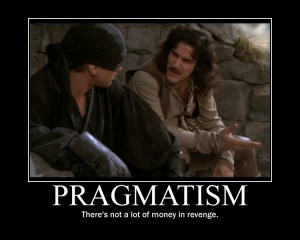Viktor Frankl
I really like Viktor Frankl and his ideas. I have been reading Man’s Search for Meaning for the paper and he has become one of my favorite thinkers that I have encountered in this class. His idea of logotherapy shows his redemptive spirit. His ideas about how people must find meaning in their lives offers hope. He had first-hand experience of the depths of human experience, spending three years in the Nazi Concentration Camps but his ability to be able to focus on the hope of seeing his wife again along with the opportunity to rewrite his manuscript, gave him meaning and by his own admission saved his life. That hope that shines through in his own person story is what makes it so clear that although he is classified among the existentialists, who often fit in the fall, he is a man who looked to help people in their search for meaning and to help them redeem themselves from themselves and their situations. I especially like the quote that we talked about today about how we ask life questions but how life also asks us a question. That question is, “What are you going to do about the situation you are in?”. He says that the only way to answer it is to find meaning to go on and live responsibly. That is the kind of redemptive thoughts that flowed from him throughout his career and life.



Matt McMahon on George Kelly: Do you see what I see?
7:05 pm, 12.03.13
I also found Kelly’s work interesting. I think that the most interesting part, like you said,was his thoughts about changing people’s perspectives. I find this fascinating especially because of how he swims against the current of other humanistic psychologists because he didn’t think that you necessarily “just be yourself” because he thought he you were was part of the reason you were having problems. Instead you should try and change the way you saw things.
Matt McMahon on Viktor Frankl: Existentialism and The Fall
6:58 pm, 12.03.13
I wrote about Frankl under Redemption but I also believe that from his own personal experience and his writings he clearly also dealt with the Fall. I think that his dealings with the Fall and all of the pain and problems is the reason why when he speaks words of hope that they are so potent.
Matt McMahon on Maslow and Redemption
6:50 pm, 12.03.13
I enjoy your connection of Maslow’s ideas to God. I think that you make a good point of how we as Christian’s can only reach self actualization through God.
Matt McMahon on
2:30 pm, 11.18.13
I also decided to write about behaviorism but put it under the category of creation but I understand what you are saying. I think the field of behaviorism as it relates to therapy seems to fit redemption well.
Matt McMahon on J.B. Watson and Little Albert
2:23 pm, 11.18.13
I think you make some really good points. I think that I personally might have associated Watson and his Little Albert experiment with the fall. My reasoning for that would be that we start out optimistic and it is negative things that happen in our lives that cause us to be fearful and angry, like Little Albert shows.
Matt McMahon on Lovass and Redemption
2:18 pm, 11.18.13
I also really liked that video in class. I think you have made some really good points. Behaviorism is a field that offers hope in a way that is often quicker and more effective than many other psychological schools and that is why it has so much to offer. I also think that is really cool that at the most basic level behaviorism does not care what the problem is, its aim is just to fix it. I think that draws a pretty clear comparison to Christianity. It is about taking people as they are.
Matt McMahon on Gestalt and Redemption
9:23 pm, 11.02.13
I like the comparison of Gestalt therapy to redemption. I think the connections you made make sense. I really like many of the practices of gestalt therapy and agree that many of them make sense in a Christian therapy setting as well.
Matt McMahon on New creation
9:19 pm, 11.02.13
This was an interesting topic to me. I agree that it makes sense to think of religion as adaptive trait. I also think though that too much is made of this by many people who are trying to prove religion to be false. I think that just because it is shown to be useful for the species in no way makes it less true.
Matt McMahon on Freud In All Categories
9:10 pm, 11.02.13
Freud and his theories are very hard to pin down and that’s why I like this post so much. I think you have done a good job examining some of his ideas and instead of trying to make them all fit into one category you take them for what they are and explain your reasoning for each choice.
Matt McMahon on Creation and Evolution
9:11 pm, 10.21.13
I like your ideas about the connection between Creation and Evolution. The conversations you modeled about christians dealing with evolution struck me because I know i have come into contact with that and I’m sure plenty other people in this class have as well. how we deal with this information is important because it can make or break faith depending on how you work through it.